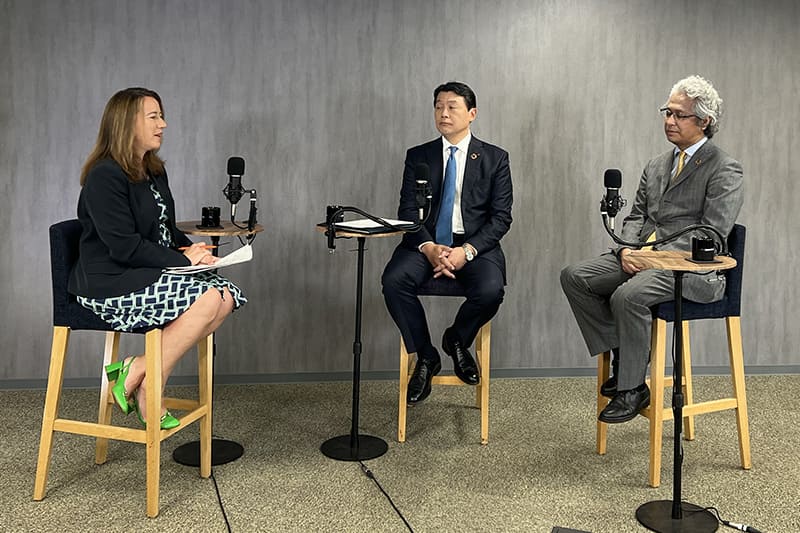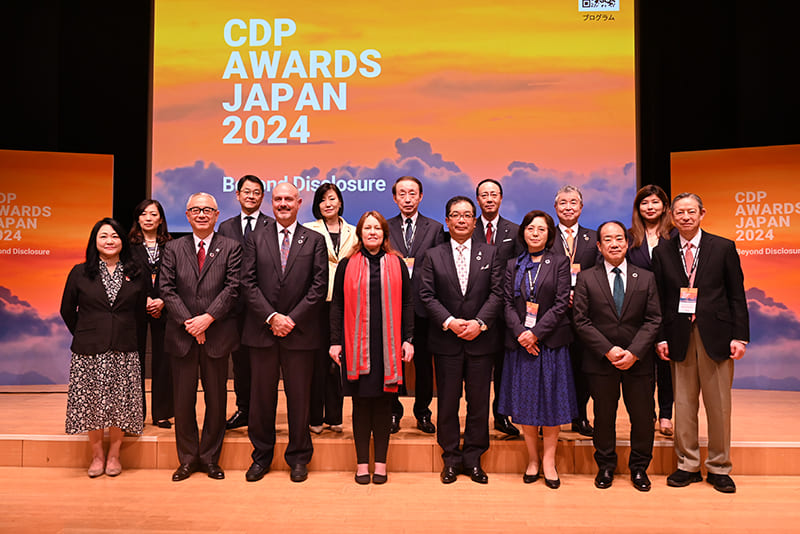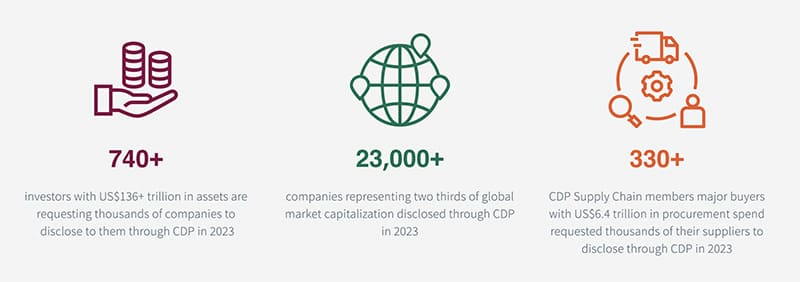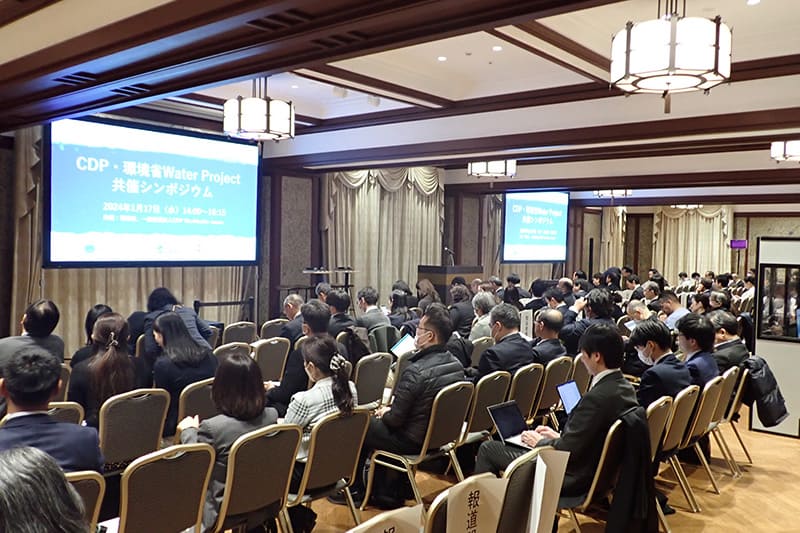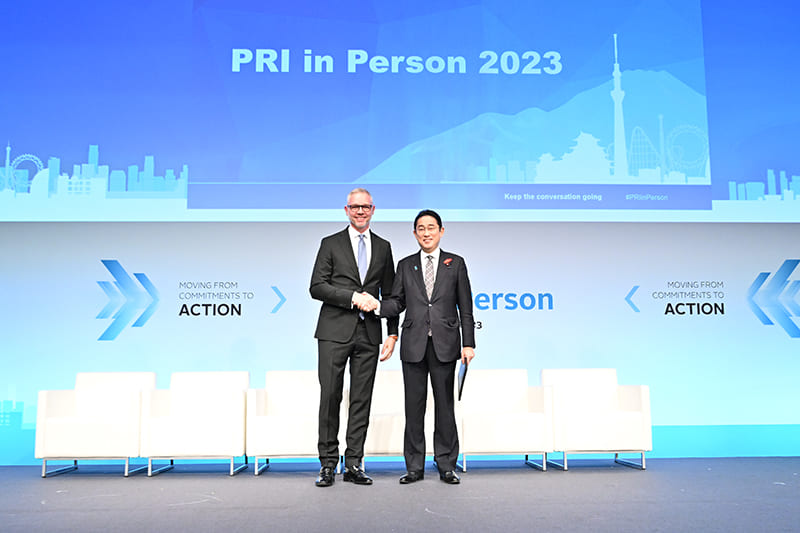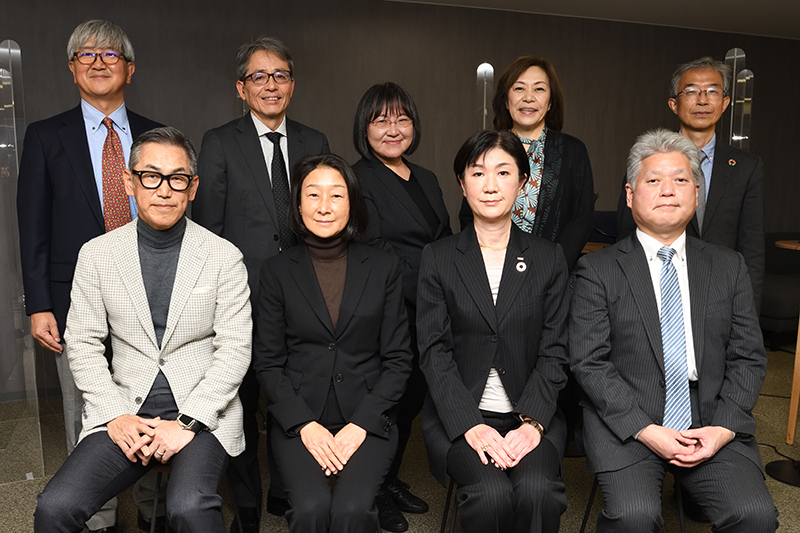May 25, 2021
Frameworks for addressing deforestation are increasing
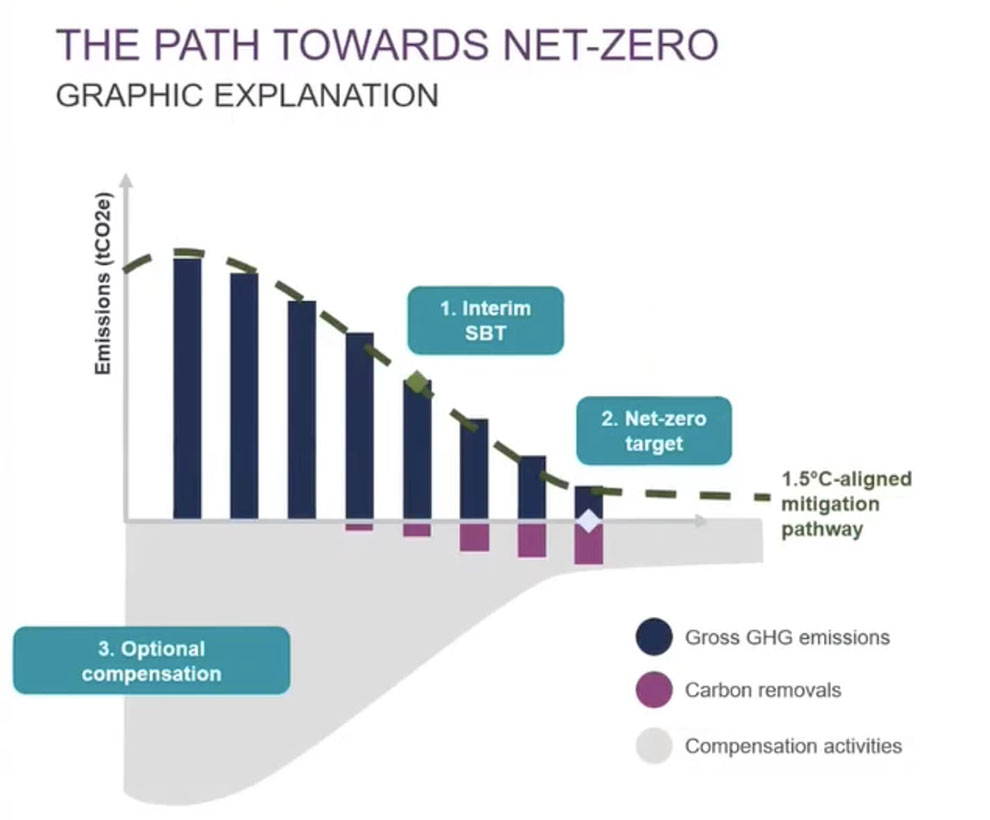
CDP (formerly the Carbon Disclosure Project) Japan conducted an online session on April 6 to present its latest reports about climate change and deforestation and discuss these closely related issues with stakeholders from Japan and abroad.
“All sectors are starting to address climate change, but not the issue of deforestation. Whether they use timber or not, many sectors are actually related to forest resources in one way or another,” said Michiyo Morisawa, director of CDP Japan and the Japan head of the Principles for Responsible Investment network, in the opening remark, encouraging companies to ensure that resources they use do not contribute to deforestation.
Tohru Nakashizuka, president of the Forest Research and Management Organization, a national institute, stated in his keynote speech that corporate and financial activities established on nature-based principles will be further incorporated into national socio-environmental goals and strategies.
He described nature-based solutions advocated by the International Union for Conservation of Nature as solving social issues and increasing biodiversity at the same time by preserving, restoring and managing the natural environment sustainably. “Infrastructures that utilize ecosystems have multifaceted functions,” he said.
Nicolette Bartlett, executive director of CDP, explained that nature-based solutions can bring companies reputational gains, reduce costs and risks, and stimulate innovation. However, “to stop and reverse deforestation” and “to halve the emissions by 2030,” Bartlett said, “there is still a significant amount of work to be done.”
Science-based targets increase
But the good news is that awareness in the private sector is increasing. According to the latest CDP report on climate change, 65% of the 500 Japanese companies that received the CDP’s climate change questionnaire in 2020 submitted answers. “The ratio is higher than the EU’s 49% and North America’s 54%,” said an official at SOCOTEC Certification Japan, which was one of the report’s writers.
Increasing numbers of companies have set science-based targets complying with the Paris Agreement’s standards on emissions reductions, use renewable energy or have received external verification of their data on emissions, according to SOCOTEC and SGS Japan Inc., the other writer of the report.
The compiler of the CDP 2020 Forest Report, Quick Corp., revealed that about 70% of the respondents to a CDP questionnaire on the disclosure of information about four forest commodities — palm oil, cattle products, soybeans and timber — are collaborating with primary suppliers to enhance the supply capacity of sustainable raw materials.
Fuji Oil Holdings Inc., which develops and makes food products such as vegetable oils, industrial chocolate and soy-based ingredients, is one such company. The chief ESG officer of Fuji Oil, Takashi Kadota, explained that the company is working with NGOs, local governments, farms and communities in producing countries to educate suppliers to avoid problems that result mainly from a lack of knowledge or poverty and to make the whole supply chain sustainable.
Getting help on strategies
For companies wishing to do something about climate change and the environment, various international organizations provide guidelines, standards and frameworks. The World Resources Institute is one of them.
Research analyst Jessica Zionts and research associate Matt Ramlow explained about WRI’s contribution to the Greenhouse Gas Protocol Land Sector and Removals Initiative. The initiative crafted guidance to help companies in the land sector “set targets, track performance and select mitigation strategies in line with the goals of the Paris Agreement,” said Ramlow. Zionts encouraged companies that are interested in doing pilot tests of the guidance to contact them.
Science Based Targets Network, a coalition of more than 45 NGO partners, offers a consolidated approach for companies to set targets based on climate science. Executive Director Erin Billman stated that emissions by companies that had worked with the network on setting targets decreased by 25% between 2015 and 2019.
The Climate Disclosure Standards Board offers “a framework for reporting environmental and climate information in the mainstream report,” said Managing Director Mardi McBrien. She emphasized that international standardization and a comprehensive system for reporting climate-related information will allow Japanese companies to streamline ESG reporting, ensure that their voices will be heard in the process of creating and updating a global standard, and attract a global audience more easily.
“There truly is no time to waste — we must act now,” she said in concluding the session.

